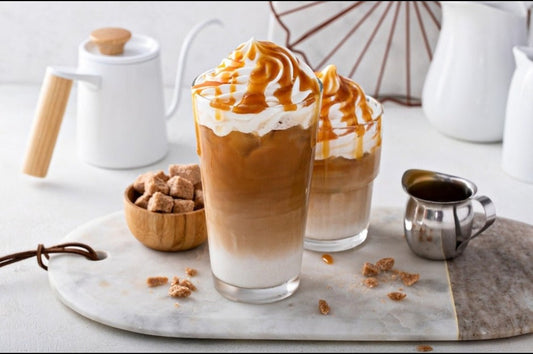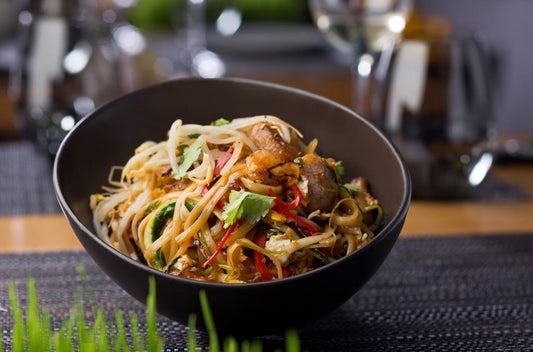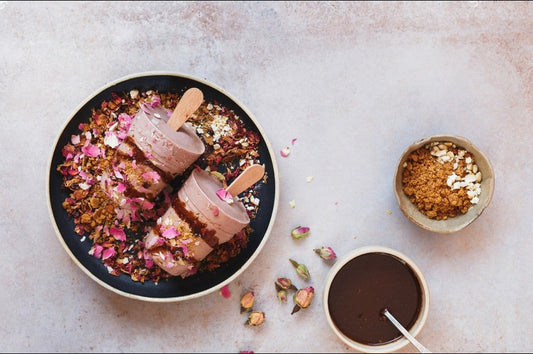
Pure Mustard Oil in Pickling and Preserving: A Guide for Beginners
Pickling and preserving foods have been essential techniques for extending the shelf life of various ingredients for centuries. While there are many methods and ingredients used in this process, pure mustard oil has emerged as a popular choice, particularly in South Asian cuisine. This guide will introduce beginners to the art of using pure mustard oil in pickling and preserving, exploring its benefits, applications, and some simple recipes to get you started.
Understanding Pure Mustard Oil
Pure mustard oil is derived from mustard seeds and has a strong, pungent aroma and flavor. It's widely used in Indian, Bangladeshi, and Pakistani cuisine for cooking, pickling, and medicinal purposes. The oil is known for its high smoke point and unique flavor profile, making it ideal for various culinary applications.
Benefits of Using Pure Mustard Oil in Pickling and Preserving
1. Natural Preservative: Mustard oil contains natural antimicrobial properties that help prevent the growth of harmful bacteria, making it an excellent preservative.
2. Flavor Enhancement: The distinctive taste of mustard oil adds depth and complexity to pickles and preserves.
3. Nutritional Value: Rich in monounsaturated and polyunsaturated fats, mustard oil offers potential health benefits when consumed in moderation.
4. Longer Shelf Life: Pickles and preserves made with mustard oil tend to last longer due to the oil's preservative qualities.
5. Versatility: It can be used with a wide range of ingredients, from vegetables to meats and fish.
Getting Started with Mustard Oil Pickling
Before diving into specific recipes, it's essential to understand the basic process of pickling with mustard oil:
1. Selecting Ingredients: Choose fresh, high-quality produce or meats for pickling. Ensure they are clean and dry.
2. Preparing the Oil: Heat the mustard oil until it reaches its smoking point, then let it cool. This process helps reduce the oil's pungency and enhances its preservative properties.
3. Spice Blend: Create a spice mix tailored to your taste preferences. Common spices include turmeric, fenugreek seeds, nigella seeds, and red chili powder.
4. Sterilization: Thoroughly clean and sterilize all jars and utensils to prevent contamination.
5. Pickling Process: Combine the prepared ingredients with the cooled oil and spices, ensuring everything is well-coated.
6. Storage: Store the pickles in airtight containers in a cool, dry place or refrigerate for longer shelf life.
Simple Recipes to Try
1. Mustard Oil Lemon Pickle
Ingredients:
- 500g lemons, quartered
- 1/4 cup salt
- 2 tbsp turmeric powder
- 1 tbsp red chili powder
- 1 cup pure mustard oil
Instructions:
- Mix lemon pieces with salt and let sit for 24 hours.
- Drain excess liquid and mix with turmeric and chili powder.
- Heat mustard oil to smoking point, then cool.
- Combine lemon mixture with cooled oil in a sterilized jar.
- Let it mature for 2-3 weeks before consuming.
2. Mixed Vegetable Pickle
Ingredients:
- 500g mixed vegetables (carrots, cauliflower, green chilies)
- 2 tbsp salt
- 1 tbsp turmeric powder
- 2 tbsp mustard seeds, ground
- 1 cup pure mustard oil
Instructions:
1. Cut vegetables into small pieces and mix with salt and turmeric.
2. Let sit for 2-3 hours, then drain excess water.
3. Heat mustard oil to smoking point, then cool.
4. Mix vegetables with ground mustard seeds and cooled oil.
5. Store in a sterilized jar and let mature for 1-2 weeks.
Tips for Successful Pickling with Mustard Oil
1. Quality Matters: Use high-quality, pure mustard oil for the best results and flavor.
2. Balance Flavors: Adjust the spice levels to suit your taste preferences.
3. Proper Storage: Always use clean, dry utensils when handling pickles to prevent contamination.
4. Patience is Key: Allow pickles to mature for the recommended time to develop full flavors.
5. Experiment: Don't be afraid to try different ingredient combinations and spice blends.
Safety Considerations
While mustard oil is widely used in South Asian cuisine, it's important to note that the FDA has not approved it for cooking in the United States due to its erucic acid content. However, it is still available for external use and in some specialty stores. Always check local regulations and consult with a healthcare professional if you have any concerns.
Preserving Beyond Pickling
While pickling is a popular use for mustard oil, it can also be used in other preserving methods:
1. Chutneys: Incorporate mustard oil into fruit or vegetable chutneys for added flavor and preservation.
2. Meat Preservation: In some cultures, mustard oil is used to preserve meats, particularly in areas without refrigeration.
3. Fish Preservation: Certain fish preparations use mustard oil as a preservative and flavoring agent.
The Cultural Significance of Mustard Oil Preserves
In many South Asian households, the art of pickling and preserving with mustard oil is passed down through generations. These preserved foods not only serve as a way to extend the life of seasonal produce but also hold cultural and emotional significance. They often remind people of home, family traditions, and the changing seasons.
Mustard Oil Alternatives
If you're unable to use pure mustard oil due to regulations or personal preference, there are alternatives you can consider:
1. Mustard Seeds: Use ground mustard seeds to impart a similar flavor profile.
2. Other Oils: Sesame oil or a neutral oil infused with mustard seeds can be used as substitutes.
3. Vinegar-Based Pickling: Traditional vinegar-based pickling methods can be explored as an alternative.
Pickling and preserving with pure mustard oil offers a unique and flavorful way to extend the life of various foods. While it requires some patience and practice, the results can be incredibly rewarding. From tangy lemon pickles to spicy mixed vegetable preserves, the possibilities are endless.
As you embark on your mustard oil pickling journey, remember to prioritize food safety, experiment with flavors, and enjoy the process. Whether you're looking to connect with your cultural heritage or simply explore new culinary techniques, mustard oil pickling provides a fascinating and delicious avenue for food preservation.
With this guide, you're now equipped with the basic knowledge to start your mustard oil pickling adventure. Happy pickling!
Continue reading
View all-

The Twin Temptation: Bakers Frappe Powder for Your Cafe-at-Home Moments
Are you tired of spending a fortune at coffee shops to get that perfect frappe? What if you could recreate that creamy, smooth, and delicious experience right in your own...
The Twin Temptation: Bakers Frappe Powder for Your Cafe-at-Home Moments
Are you tired of spending a fortune at coffee shops to get that perfect frappe? What if you could recreate that creamy, smooth, and delicious experience right in your own...
-

Spice Up Your Plate: The Golden Touch of Puress Cold Pressed Mustard Oil!
Puress Cold Pressed Mustard Oil can transform a dish with its unique flavor profile. Try it now!
Spice Up Your Plate: The Golden Touch of Puress Cold Pressed Mustard Oil!
Puress Cold Pressed Mustard Oil can transform a dish with its unique flavor profile. Try it now!
-






